< Back to Our StoriesLung Cancer Awareness in Malaysia
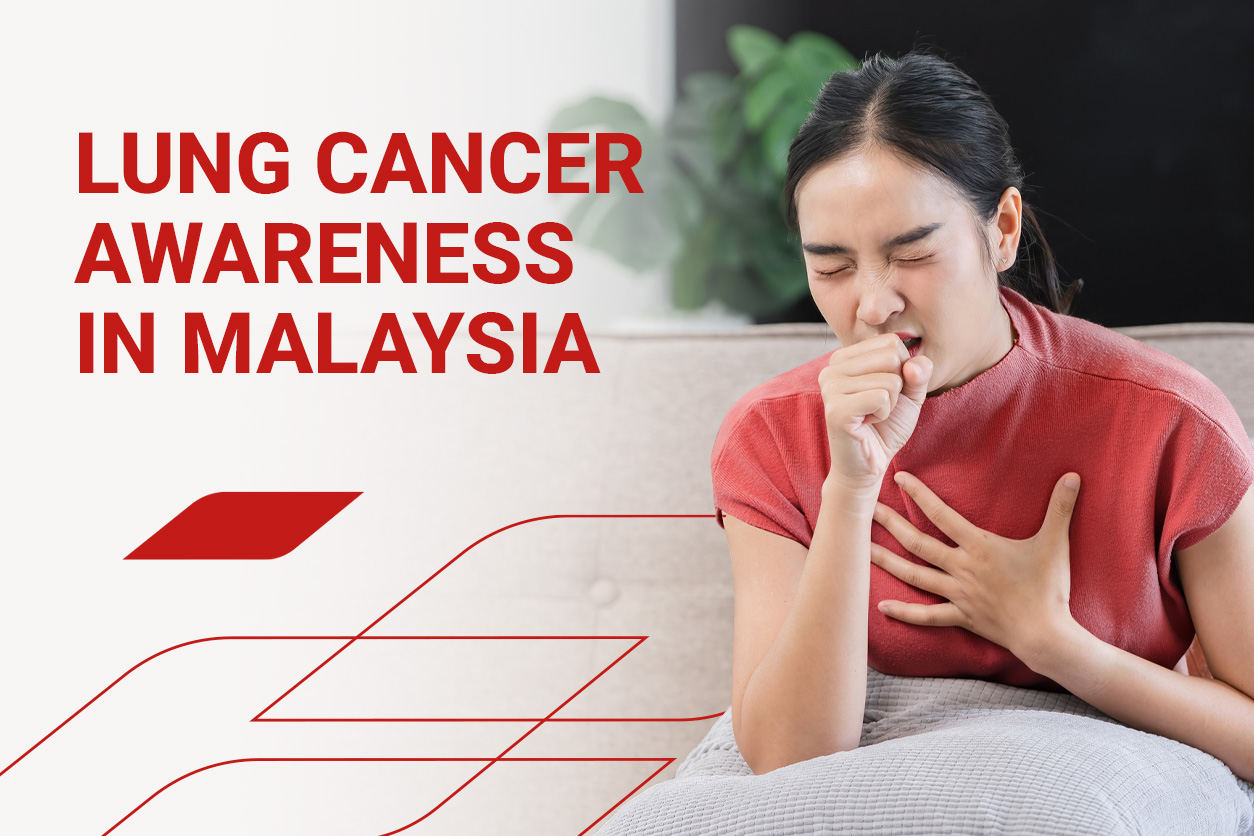

Lung cancer remains one of the most pressing health challenges in Malaysia, especially due to the high number of late-stage diagnoses. According to a 2025 report by Cancer Matters (an initiative by The National Cancer Society of Malaysia), over 90% of lung cancer cases in Malaysia are only detected at Stage III or IV, when treatment is more difficult and survival rates drop significantly.
This underscores the importance of public awareness and early screening. Misconceptions about lung cancer also remain a barrier. For example, nearly 60% of survey participants believed that lung cancer only affects men, even though Malaysian women are also at risk.
Awareness isn’t just about data, it’s about empowering people to take early action, assess their personal risk, and make informed health decisions. This guide aims to help Malaysians better understand lung cancer and recognize the importance of prevention, early detection, and timely medical intervention.
Common factors that link to Lung Cancer
Most people believe that only smokers develop lung cancer, but that’s a misconception. While smoking is a major risk factor, it’s not the only cause. In Malaysia, several other common factors also increase the risk of lung cancer.
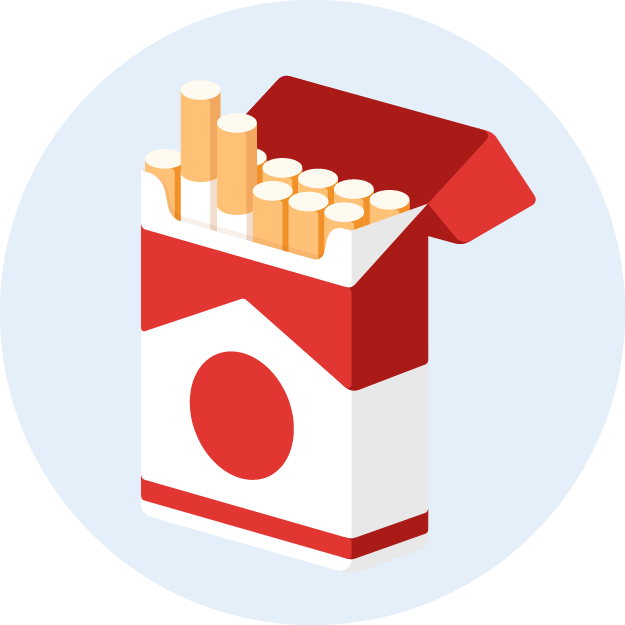
Smoking and Secondhand Smoke
Smoking is the most significant risk factor for developing lung cancer. This includes smoking traditional cigarettes, rolling your own tobacco, and using e-cigarettes. Being near secondhand smoke, especially in homes or workplaces, also increases the risk of lung cancer in non-smokers.
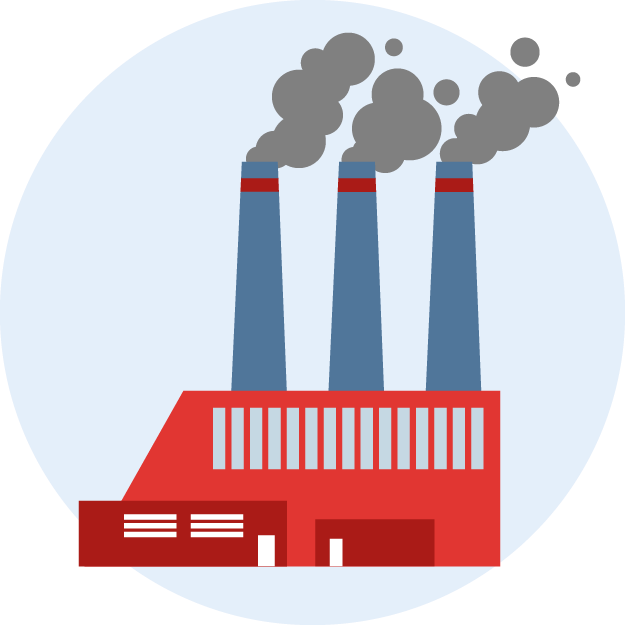
Air Pollution
Breathing in polluted air, especially in cities and factories, has been linked to lung cancer. This includes smog and pollutants from automotives.
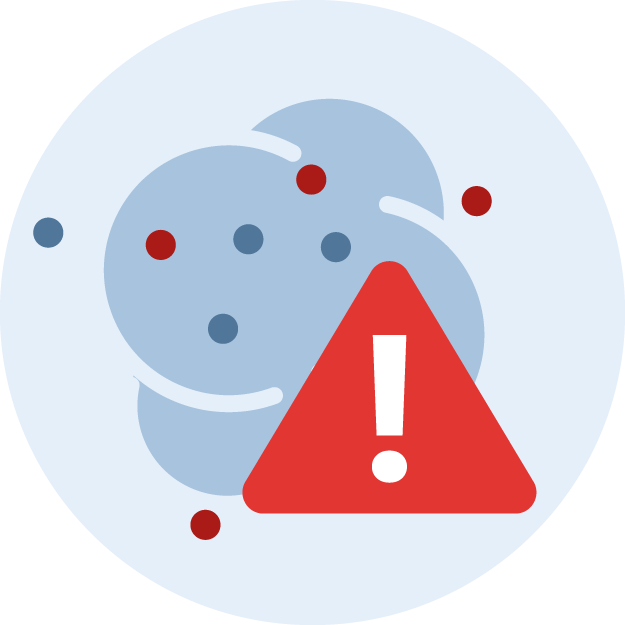
Harmful Chemicals
Long-term exposure to substances like asbestos, radon, arsenic, or other types of industrial dust can cause damage to lung tissue over time.
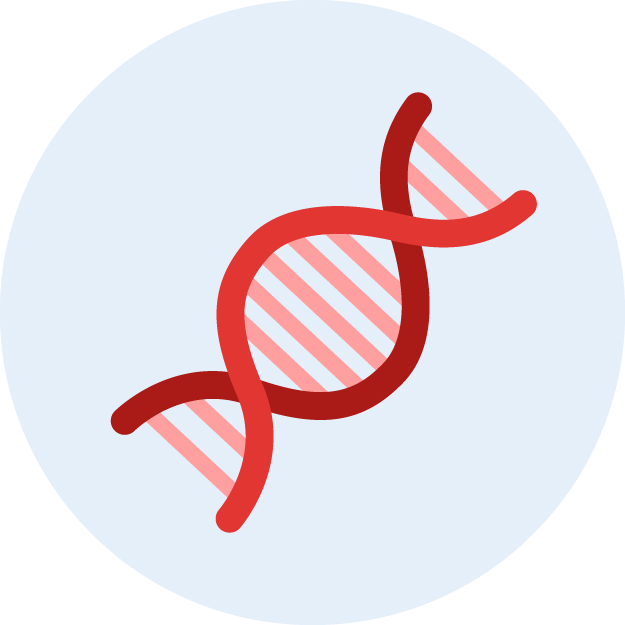
Family History
If a close family member has had lung cancer, your risk may be higher due to inherited genetic factors and shared lifestyle habits.
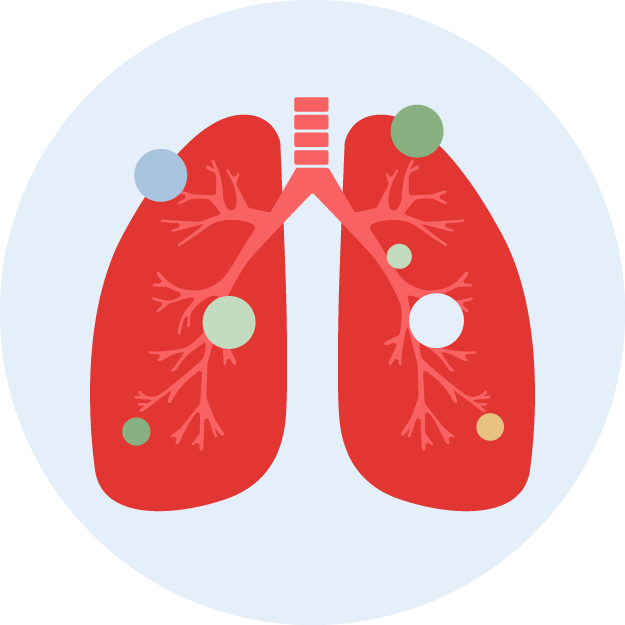
Lung Diseases
Having chronic lung disorders like tuberculosis (TB), Chronic Obstructive Pulmonary Disease (COPD), or lung infections that keep coming back may make you more likely to have cancer over time.
![]()
![]()
Why Raising Awareness Matters
Many people still associate lung cancer only with smokers and avoid talking about it out of fear and stigma. This lack of open conversation can cause others to overlook their own risk factors, delay health checks, and miss the chance for early detection when treatment is most effective.
Here’s why ongoing awareness is important, especially in Malaysia:
- The sooner lung cancer is detected, the better the chances of recovery. More people are screened before they develop symptoms when they are aware of the screening.
- People will know that lung cancer isn't just a sickness that affects smokers if you talk about it honestly. Anyone can be in danger, and it's not wrong to get examined.
- With more Malaysians being made aware of lung cancer, it can help the community get healthier. We can advocate for cleaner air, stricter smoking restrictions, and accessible health services that benefit everyone.
How to Reduce Your Risk of Lung Cancer
There is no sure way to avoid getting lung cancer, but you can lessen your risk by doing certain things.
- Quit Smoking: The best thing you can do. If you smoke, consider joining a quit-smoking program or support group; it’s one of the best steps you can take.
- Avoid Second-Hand Smoke: Create safe areas that prohibit smoking in your home or car. There should also be rules against smoking in public places and offices.
- Reduce Exposure to Harmful Substances: Wear protective gear when working with chemicals. Follow safety measures to avoid breathing in harmful dust or fumes. Avoid burning materials that produce hazardous smoke and keep the air in your home fresh.
- Prioritise Lung Health: Eat a nutritious diet rich in fruits and vegetables. To stay active, walk or engage in light exercise every day. If you experience a cough or shortness of breath that lasts for an extended period, don't ignore it; get it checked.
Pro Tip: If you live in an area with high pollution, consider using air purifiers indoors and wearing masks when the air is particularly hazy.
![]()
![]()
How to Act for Lung Cancer Awareness in Malaysia
You don’t need to be a medical professional to make a difference. Small, thoughtful actions within your family, community, or workplace can help raise awareness and potentially save lives.
Here are some ways you may help:
Talk to Loved Ones
Start a conversation with someone you care about.
Ask your parents, spouse, or friends if they've ever thought about how healthy their lungs are. Share what you've learned about the risks and dangers.
Sometimes, simple talk can lead to real change.
Encourage Screenings
If someone you know is at high risk due to age, smoking, or existing lung issues, encourage them to speak to their doctor about lung health check. Early detection through a screening could make a world of difference.
Share What You Learn
Share facts about lung cancer on social media. Sharing this article or a video about it can help spread the word.
Support Awareness Events
If your job or community centre hosts a discussion, an exhibition, or a health exam, consider participating or volunteering. People are more aware when they see others becoming involved.
![]()
![]()
Fast Facts: Lung Cancer in Malaysia
| Key Facts |
Details Specific to Malaysia |
| Most Deadly Cancer |
Lung cancer is the leading cause of cancer-related deaths in Malaysia.
Source: Cancer Matters Malaysia, 2025
|
| Late Detection Rates |
90–95% of lung cancer cases in Malaysia are diagnosed at late stages.
Sources: Cancer Matters Malaysia, 2025
|
| Gender Impact |
Men remain more affected, but lung cancer rates among women are rising due to secondhand smoke.
Sources: Cancer Matters Malaysia; The Star .
|
| Misconception |
Many believe only smokers are at risk—air pollution and genetics also contribute. |
| Importance of Screening |
According to the Lung Cancer Network Malaysia (LCNM) via codeblue, nearly 95% of lung cancer cases in Malaysia are detected at stage III or IV, when treatment is more difficult and outcomes are poorer. However, advances in early detection such as AI-enhanced liquid biopsies are showing promise in shifting diagnosis to earlier stages. This underscores the importance of screening and awareness, especially for high-risk groups. |
Common Questions About Lung Cancer
Does smoking only cause lung cancer?
No. The highest danger is smoking, although air pollution, secondhand smoke, and other health concerns also play a part.
What are the early signs of lung cancer?
A cough that won't go away, chest pain, coughing up blood, difficulty breathing, or recurring chest infections. You shouldn't ignore these signs.
Can young people get lung cancer?
Yes, however, it occurs more frequently in older individuals. Young people who have a family history of lung difficulties or have had lung problems in the past should also be wary.
Where can I get screened in Malaysia?
Check with government hospitals or specialist clinics for more information. Some cancer clinics and non-profits provide programs during Lung Cancer Awareness Month to increase awareness and screen people for the disease.
Conclusion
Lung cancer remains one of Malaysia’s most pressing health concerns. But with better awareness, earlier screening, and informed action, we can reduce the number of late-stage diagnoses and improve outcomes.
It’s always the right time to reflect on your lung health and the well-being of those you love. Whether it's quitting smoking, encouraging a loved one to get screened, or simply sharing what you've learned, every small step contributes to a healthier community.
Beyond awareness, it's also important to think about protection. For people seeking added peace of mind, platforms like Let’s Go For Life by Generali Life Insurance now make it easier to access critical illness coverage online, including plans that provide financial support in the event of a serious diagnosis, including lung cancer.
By taking action today, through awareness, prevention, and protection, we can help build a stronger, healthier future for all of us.

